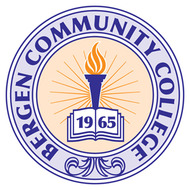(View Complete Item Description)
Student Learning Objectives As a result of meeting the requirements in this course, you will be able to: 1. Employ a variety of approaches to analyze and interpret texts. (PLG 1) (Gen Ed Goal 1 a)2. Respond to texts, in discussion and writing assignments, demonstrating an understanding of rhetorical strategies employed in the texts. (PLG 2) (Gen Ed Goal 1a, b; 6 a, b)3. Incorporate the fundamentals of academic essay writing such as gathering ideas, developing and clearly stating theses, organizing, drafting, revising, and editing. (PLG 3) (Gen Ed Goal 1 c, d) 4. Compose essays in several rhetorical modes, such as description, comparison/contrast, and argument. (PLG 3) (Gen Ed Goal 1c, d)5. Move from personal responses to formal academic essays, including appropriate, properly formatted evidence from outside sources. (PLG 4, 5) (Gen Ed Goal 1 c) 6. Accurately incorporate the ideas of others using summary, paraphrase, and direct quotation. (PLG 4, 5) (Gen Ed Goal 1 c; 6 b)7. Incorporate the academic requirements, tools, and techniques of research through the resources of contemporary information science. (PLG 6) (Gen Ed Goal 4 a, b, c, d)8. Employ current MLA style for text presentation, in-text citations, and Works Cited pages for essays and research papers. (PLG 5, 6) (Gen Ed Goal 4 a, b, c, d)9. Write an argumentative research paper accurately incorporating material from outside sources. (PLG 4, 5, 6) (Gen Ed Goal 1 a, b, c, d; 4 a, b, c, d; 6 a, b) Course Requirements You will be required to do the following: Write at least four multi-paragraph assignments of at least 500 words.(Meets student learning objectives 1-5) Write at least one in-class essay. (Meets student learning objectives 2-5) Complete other writing exercises such as summaries, journals, reading responses, reading comprehension questions, quizzes on reading assignments, letters, resumes, etc. (Meets student learning objectives 1-6) Read, interpret, and analyze a variety of texts. (Meets student learning objectives 1, 2) Conduct independent research and write a 5-7-page research paper, using MLA style. (Meets student learning objectives 6-9) Submit papers that adhere to MLA manuscript requirements and which demonstrate effective proofreading and editing. (Meets student learning objectives 1-9) Participate in class discussions and other in-class (individual or group) activities necessary to produce quality expository prose. (Meets student learning objectives 2-7)
Material Type:
Module
Author:
Ellen Feig




















